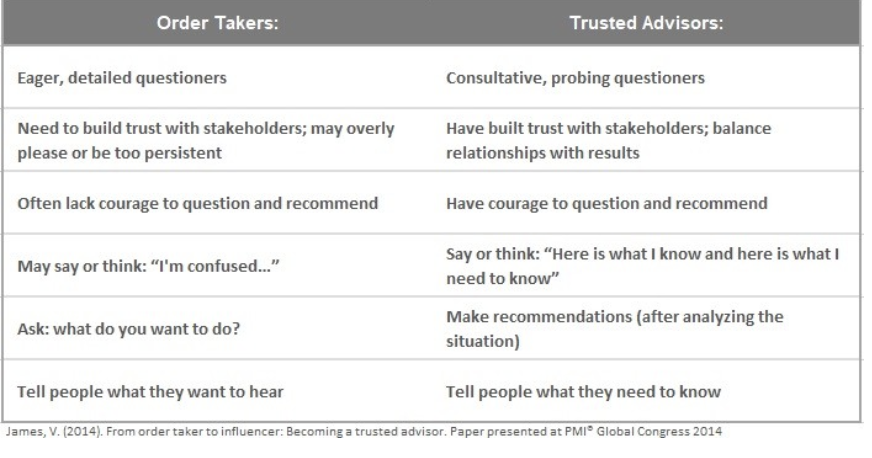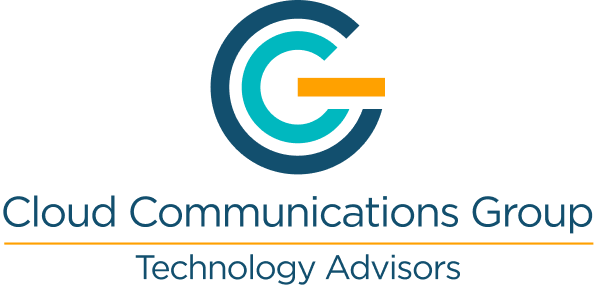CIO Perspectives: What is a Trusted Advisor and why do I need one?
For over 30 years of my career operating in various roles in IT, the one constant I faced at every level of the organization was the expectation placed on me to deliver solutions. As an analyst on a QA team, I was expected to challenge a piece of software and expose its defects. As a developer, the solutions came in the form of (hopefully) minimal defect, highly functional and performant pieces of code. As a development manager, those pieces had to come together in the form of a software system to solve for a key element of a business transaction. And as a CIO, coupling those systems and its data with infrastructure to solve for complex business challenges proved the pinnacle of solutioning.
My recent transition away from traditional IT as a consumer of technology and services into a role as a provider of technology solutions has proven to be an eye opening experience in several ways. First, I had to truly embrace the value a Trusted Advisor can bring to the critical discipline of technology solutioning. Second, I had to realign my way of thinking in how I consumed technology in the past to current consumption models. And third, and most importantly, I had to open my eyes to the vast array of emerging technology solutions that are dramatically changing the landscape of capabilities and that, quite frankly, I was completely unaware of in my role as a CIO. I have discovered numerous technologies delivered by countless providers that I had never even heard of and solutions that I likely would have considered highly valuable to my IT strategy had I had the awareness.
As a CIO, my key objectives, driven by the business, focused my line of sight directly on my business partners, my team, my budget, and my current capabilities. And when those objectives required capabilities outside those I currently possessed, I looked to technology providers for solutions. But how did I start this journey? Well, maybe someone on my team had knowledge of a specific solution set that would solve the problem but more than likely, they were too laser-focused on daily tactical issues and firefighting to have had the bandwidth to explore the wide array of available solutions. Maybe I’d consult the latest Gartner Magic Quadrant and gather together a list of the 30 vendors that might have a solution but how do I begin to manage that list? Maybe I’d reach out to my VAR although their line-card is limited and by definition, non-agnostic. Or maybe I’d drop large sums of money on consultants.
What I truly need to face this challenge is someone I can trust. Someone who brings subject matter expertise to the problem and can quickly consume high-level goals and objectives and whittle down seemingly limitless providers into a manageable solution set. Someone who is not just an order taker but can sit on my side of the table and partner with me in the discovery process. Someone who can leverage their industry expertise to help negotiate the best deal. Someone who is vendor-agnostic and thoroughly understands the technology landscape. Someone whose success is tied to mine and who has an incentive to build a long-term relationship. And someone whose compensation is aligned with delivering a fully functioning solution. Ultimately, someone who has my back. I need a Trusted Advisor.
A good Trusted Advisor is defined by several key characteristics. First and foremost, my Trusted Advisor needs to take a “what’s in it for you” viewpoint. They need to exhibit broad subject matter expertise. They should act as a confidant and be someone with whom I can discuss the business and IT-aligned strategy but also be a tactical thinker.

The need to be outcome oriented. They need to be a true partner and someone for whom I wish to have a seat at the table. They should be willing to question and disagree with a proposed direction but provide encouragement and support when the decision is made. They need to be an avid listener and thoughtful questioner. Ultimately, they need to be an extension of me and my team.
So, to my fellow CIOs (and CTOs and CISOs alike), whether you’re fortunate enough to find yourself in an organization with the breadth to stay on top of the broad set of technologies available to you (which very few of us are) or you have limited resources and don’t have the luxury of an awareness of the solution landscape because you and your team’s focus is on driving business outcomes, seek out a partnership with a Trusted Advisor. And when you do, make sure they can bring the value you know to expect and when that happens, you will have found yourself a new ally in the daily fight to grow your business through technology.

